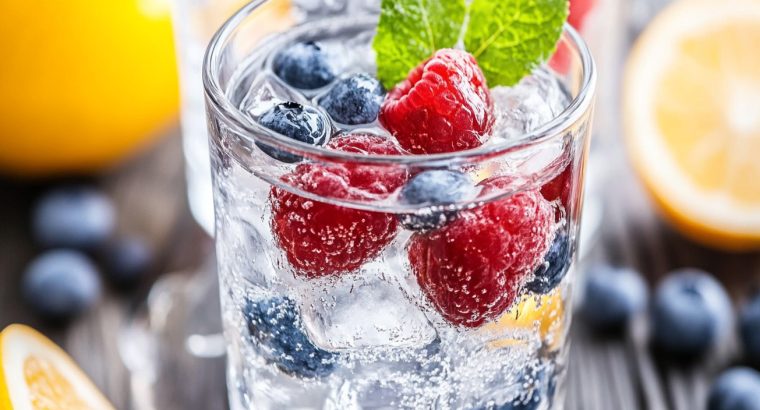How to Balance Blood Sugar with Proper Hydration
In today’s fast-paced world, maintaining balanced blood sugar levels has become a growing concern for many individuals, especially those managing conditions like diabetes. While diet and exercise are well-recognized pillars of blood sugar management, the role of hydration is often overlooked. This article delves into the critical connection between hydration and blood sugar levels and provides practical tips on how to effectively use hydration as a tool to achieve better metabolic health.
Understanding Blood Sugar and Hydration
Before exploring how hydration can influence blood sugar levels, it is essential to understand these two concepts:
What is Blood Sugar?
Blood sugar, or blood glucose, is the main sugar found in your blood and is your body’s primary source of energy. It comes from the food you eat, and your body regulates its levels through insulin, a hormone that helps cells absorb glucose for energy or store it for future use. Maintaining balanced blood sugar levels is crucial as imbalances can lead to prediabetes, diabetes, and other metabolic syndromes.
The Importance of Hydration
Hydration refers to the process of maintaining an adequate balance of fluids in the body. Water is vital for nearly every bodily function — it regulates body temperature, lubricates joints, transports nutrients, and removes waste. Dehydration can disrupt bodily functions and exacerbate health issues.
How Hydration Affects Blood Sugar
The relationship between hydration and blood sugar is intricate but significant:
1. Improved Insulin Sensitivity
Adequate hydration can enhance insulin sensitivity, meaning your body requires less insulin to lower blood glucose levels effectively. When dehydrated, your body produces more antidiuretic hormone (ADH) and cortisol, which can increase blood sugar levels and decrease insulin sensitivity.
2. Prevention of Dehydration-Induced Hyperglycemia
Dehydration can lead to an increase in blood sugar levels. This happens because less water in the blood equates to a higher concentration of glucose. Consequently, staying hydrated helps maintain an optimal concentration of glucose in the blood, preventing dehydration-induced hyperglycemia (high blood sugar).
3. Supporting Kidney Function
Proper hydration assists kidney function, which is essential in removing excess glucose from the blood through urine. Dehydration impairs kidney function, making it difficult to manage blood sugar levels effectively.
4. Reduction of Hunger and Overeating
Sometimes the body confuses thirst with hunger, leading to unnecessary snacking or overeating, which can spike blood sugar levels. By maintaining good hydration status, you can differentiate between hunger and thirst signals, helping to control caloric intake and stabilize blood sugar.
Tips to Balance Blood Sugar with Proper Hydration
Given the impact hydration has on blood sugar levels, here are some actionable steps you can take:
1. Monitor Your Water Intake
Ensure you are consuming adequate amounts of water daily. A general guideline is to drink about 8-10 cups of water a day, but individual needs can vary based on activity level, climate, and health status. Pay attention to your body’s signals and adjust your intake accordingly.
2. Hydrate with Electrolytes
Electrolytes like sodium, potassium, and magnesium are crucial for maintaining fluid balance. If you engage in intense workouts or are in a hot climate, consider drinks that contain electrolytes. However, choose options without added sugars to prevent a sugar spike.
3. Monitor the Color of Your Urine
A simple way to check your hydration status is by observing your urine color. Pale yellow is an indicator of good hydration, while darker urine signifies dehydration. Regularly monitor and adjust your water intake to maintain optimal hydration.
4. Start Your Day with Water
Kick-start your metabolism and insulin sensitivity by drinking a glass of water first thing in the morning. This habit helps replenish fluids lost overnight and sets a positive tone for the rest of the day.
5. Incorporate Hydrating Foods
Incorporate water-rich foods into your diet, such as cucumbers, oranges, and strawberries. These foods contribute to your daily water intake and offer other nutritional benefits.
6. Limit Diuretics
Caffeine and alcohol are diuretics, which can lead to fluid loss. Limit your intake of these substances to maintain hydration levels and keep blood sugar in check.
7. Set Hydration Reminders
In the hustle and bustle of daily life, it’s easy to forget to drink water. Set reminders on your phone or use apps designed to prompt you to drink water throughout the day.
Myths about Hydration and Blood Sugar
While hydration is key to managing blood sugar, it’s important to dispel some common myths:
1. Myth: Any Liquid is Good for Hydration
Not all liquids are equal. Sugary drinks like soda and some fruit juices can spike blood sugar levels. Focus on water and drinks with no added sugars or artificial sweeteners.
2. Myth: Drinking Water Can Cure Diabetes
Drinking water is essential for managing diabetes, but it is not a cure. Balanced nutrition, regular physical activity, and medical management as directed by healthcare providers are vital components of diabetes care.
3. Myth: Hydration is Only Important in Hot Weather
Hydration is crucial in any climate or temperature. Even in cold environments, your body loses water through processes like respiration and requires consistent hydration.
Conclusion
Balancing blood sugar levels is a multifaceted approach that requires careful attention to various lifestyle factors, and hydration plays a key role in this equation. By staying adequately hydrated, you can support insulin sensitivity, prevent dehydration-induced hyperglycemia, and aid in maintaining overall metabolic health. Combine these practices with proper nutrition and regular physical activity, and consult with a healthcare provider to create a comprehensive approach to managing your blood sugar effectively.

